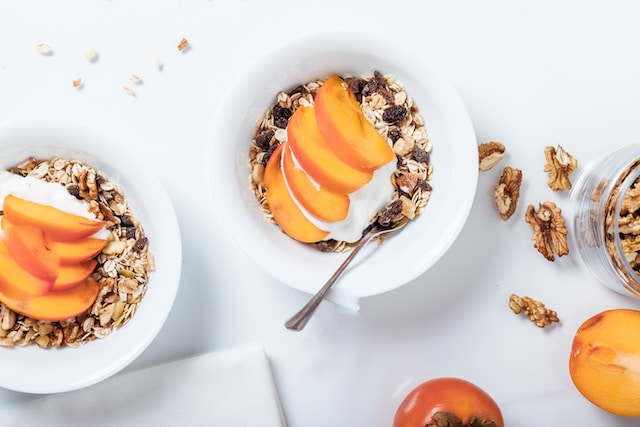Introduction:
We all strive for a long and fulfilling life, and the quest for longevity has been a topic of interest for centuries. While genetics and lifestyle factors play a role in determining lifespan, emerging research suggests that our diet plays a crucial role in defying age and extending our years on Earth. In this article, we delve into the fascinating world of food for longevity, exploring how a healthy diet can impact aging and promote a longer, healthier life.
The Aging Process and Its Challenges:
Aging is a natural process characterized by a gradual decline in physiological functions and an increased vulnerability to age-related diseases. As we age, our bodies experience changes at the cellular and molecular levels, leading to a decline in organ function, reduced immune response, and increased inflammation. However, emerging scientific evidence indicates that a healthy diet can mitigate these effects and slow down the aging process.
The Role of a Healthy Diet:
A healthy diet, rich in nutrient-dense foods, provides the body with essential vitamins, minerals, antioxidants, and other bioactive compounds that support optimal cellular function and repair. Here are some key components of a diet that promotes longevity:
- Plant-Based Foods: A plant-centric diet, rich in fruits, vegetables, whole grains, legumes, and nuts, has been associated with longevity. These foods are packed with antioxidants, fiber, and phytochemicals that combat oxidative stress, reduce inflammation, and protect against age-related diseases.
- Healthy Fats: Including sources of healthy fats, such as olive oil, avocados, nuts, and fatty fish, provides essential omega-3 fatty acids and monounsaturated fats that promote heart health, brain function, and overall well-being.
- Lean Protein: Choosing lean protein sources, such as fish, poultry, legumes, and tofu, supports muscle health, satiety, and tissue repair, while minimizing the consumption of processed meats and excessive red meat.
- Colorful Variety: Incorporating a wide array of colorful fruits and vegetables ensures a diverse intake of vitamins, minerals, and phytonutrients, which have been linked to a lower risk of chronic diseases and improved overall health.
The Impact of Caloric Restriction:
Caloric restriction, without malnutrition, has been shown to extend lifespan and delay the onset of age-related diseases in various organisms, from yeast to mammals. This dietary approach involves reducing overall calorie intake while maintaining adequate nutrition. The underlying mechanisms behind the benefits of caloric restriction are complex and involve cellular and molecular processes that enhance cellular repair, increase stress resistance, and improve metabolism.
Intermittent Fasting and Time-Restricted Eating:
Intermittent fasting and time-restricted eating are eating patterns that have gained attention for their potential benefits in promoting longevity. Intermittent fasting involves cycling between periods of fasting and eating, while time-restricted eating restricts the daily eating window to a specific timeframe. These approaches have shown promising effects on metabolic health, cellular repair, and inflammation regulation.
The Importance of Mindful Eating:
Beyond the specific components of a healthy diet, the practice of mindful eating is crucial for promoting longevity. Mindful eating involves paying attention to the sensations, thoughts, and emotions associated with eating, and cultivating a healthy relationship with food. It encourages savoring each bite, listening to hunger and fullness cues, and making conscious choices that align with long-term health goals.
Lifestyle Factors and Longevity:
While diet plays a significant role in extending lifespan, it is important to note that other lifestyle factors also contribute to overall longevity. Regular physical activity, stress management, adequate sleep, and social connections are all important components of a healthy lifestyle that can positively impact aging and lifespan.
Conclusion:
The pursuit of longevity is a multifaceted endeavor, and our diet plays a vital role in defying age and extending lifespan. A healthy diet, rich in plant-based foods, healthy fats, lean proteins, and a colorful variety of fruits and vegetables, provides essential nutrients and bioactive compounds that support cellular health and overall well-being. Additionally, practices such as caloric restriction, intermittent fasting, and mindful eating have shown promising effects on aging and age-related diseases. Embracing a holistic approach that encompasses a healthy diet and lifestyle factors can empower us to live longer, healthier lives and unlock the secrets of food for longevity.










